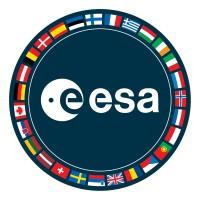DEEP Projects
Created in 2011

- BETA

Up & running (A)
Existing signals show a regular activity Social networks
1,329 219Activities
Technologies
Entity types
Location
Wilhelm-Johnen-Straße, 52428 Jülich, Germany
Jülich
Germany
Employees
Scale: 51-200
Estimated: 3
SIREN
504462318Engaged corporates
5
0 4Added in Motherbase
1 year, 6 months ago
Value proposition
Developing a novel HPC architecture that paves the way for European exascale systems.
DEEP stands for Dynamical Exascale Entry Platform. Since 2011, the DEEP series of projects (DEEP, DEEP-ER, DEEP-EST) has pioneered an innovative concept known as the Modular Supercomputer Architecture (MSA). This novel HPC architecture paves the way for the next milestone in supercomputing: exascale systems with the power to perform 10^18 Floating Point Operations per second.
The fourth project in the row is DEEP-SEA. It started on April 1, 2021 with a term of 3 years. The project will deliver the programming environment for future European exascale systems, adapting all levels of the software stack to support highly heterogeneous compute and memory configurations. It will also allow code optimisation across existing and future architectures and systems. The software stack includes low-level drivers, computation and communication libraries, resource management, and programming abstractions with associated runtime systems and tools.
The DEEP Projects have received funding from the European Commission's FP7, H2020, and EuroHPC Programmes, under Grant Agreements n° 287530, 610476, 754304, and 955606. In the latter (DEEP-SEA), national contributions from the involved state members match the EuroHPC funding.
Supercomputing, Exascale, Computer Science, and HPC
DEEP-Projects
https://deep-projects.eu/

| Corporate | Type | Tweets | Articles | |
|---|---|---|---|---|
 | Eviden | Other 10 Dec 2023 | | |
 Atos IT services, IT Services and IT Consulting | Atos IT services, IT Services and IT Consulting | Other 30 Oct 2023 | | |
 European Space Agency - ESA Defence and Aerospace, Aviation and Aerospace Component Manufacturing | European Space Agency - ESA Defence and Aerospace, Aviation and Aerospace Component Manufacturing | Other 28 Sep 2023 | | |
 Intel Corporation IT services, Semiconductors, Semiconductor Manufacturing | Intel Corporation IT services, Semiconductors, Semiconductor Manufacturing | Other 28 Apr 2017 | | |
 CEA Research | CEA Research | Other 7 May 2021 10 Dec 2023 | | |